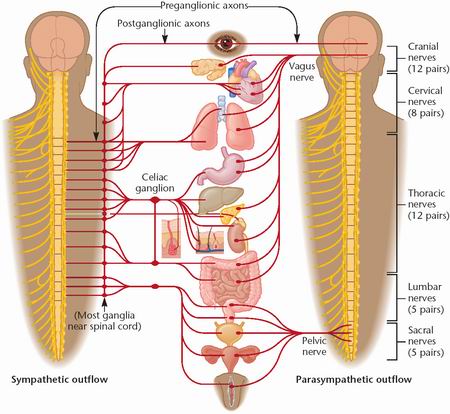From an interview with Oliver Sacks in Psychology Today:
"OS: Our culture beats on us constantly, and we see this most clearly in the occasional wild child, the wolf boy, who has been lost in the woods. Our nervous systems need culture as much as they need chemicals. Without language and culture, we are like headless monsters.
PT: The culture tunes our neurons....
OS: Right, and so the biological and the cultural are woven in us together from the very start, from the first days of life. This is why a pure view of physiology is not sufficient. It has to take in the whole world."
I am kind of constantly investigating and researching the effects of culture. I look into every door of science and scholastic history I can to gain some insight into my own experience. I know that my culture has shaped my perception, better yet has shaped my sensory experience. I know through my entire investment I make into Somatic Psychology, which like many begins by inquiring into our own nature. One small slice of this inquiry leads me to my life and development from 8-13. More specifically my alienation and abandonment from my body and into my mind. I will tell this story over a few days, so this post and this story will just continue to evolve.
Early in my life I was diagnosed with A.D.H.D and put on the first generation of treatments. The first was the Fine Gold diet then a precursor to Ritalin and finally I was on Ritalin. I recall having a wide range of ticks as a byproduct of being on Ritalin. I would cough incessantly or pick my nails in 5th grade, getting all the cuticles out with small staples I would find on the floor. I would have to soak my fingers in some warm water soapy solution at night to help ease my picked at fingers. My body felt like a vibrating ever-present drum beat with no rhythm, pattern, or beat. This was not a horrific traumatic event, but rather a low grade annoyance that had multiple effects. In relating to myself, to my family, to my local little world, and to the media stream into our home that informed me about the world outside of my local little world. With all of these variables converging within my little 8-13 year old being, I was so absolutely uncomfortable in my body that I found a refuge in my mind. In fantasy, in thought, in the visual, in the auditory, basically all my senses from the neck up. Through this time period I grew accustomed to ignoring the information of my lower body, the neck down. It was the neck down that was tight, constricted, bouncy, short of breath with abundant crazy energy, energy that felt hot and bitter, that was angry, but not knowing where this belonged. So with just a bit of Ritalin, a lot of TV, and a divorcing family, and a culture with no language, attention, or attunement on the neck down life, I forgot about it. This did not happen overnight, but incrementally, day by day and soon my neural networks wired upwards and did so minimally downwards. There was enough wiring form me to skateboard and run and play, but not enough to feel my posture, breath, or where my arms were in space aka proprioception. As when i did most of these activities I did them first from my imagination, from "control central", from the voices in my head, from my alienated neck up in the clouds. I remember feeling psychotic when I was 13, not really because, at 13 I really did not know what this meant, but I had so many scary thoughts. Thoughts that in reflection were like movie scenarios.
My parents got cable when I was 11ish. It was a brown box with lots of black numbered buttons, I would click them constantly seeking a resonant channel. Looking for that one show that would fully engage all that I wanted, all that in this vital moment could completely fulfill me, that could continue to keep my attention going out my eyes and ears, that ONE channel to hold me captive, while I was able to ignore the volcanic agitation and heat within the region below my neck. Some times I would find stuff to connect with, but mostly it was mediocre and my seeking to be fulfilled would just be resigned to what whatever was on. I lived like this for a while, just going to school in an imaginative haze. I interacted and appeared to be just like everyone else, but I had a private life within my own mind. By the time I was 13 my inner thought world from the neck up was so habituated that I barely noticed that my ticks had become regular and that at 13 I preferred to be alone. One of the many conflicted themes within this was that I hated not being liked, so all the while that I preferred to be alone, I couldn't say no and I really really needed to fit in. I never understood this impulse to fit in, but when I didn't, when say I was shunned for my ticks, my agitation below my neck would rumble of tightness and constrict my throat for days. I never mentioned any of this because it was all just too subtle. I was though taken to a whole host of throat and nose doctors to solve the mystery of my ticks. Was I allergic, did I have a throat obstruction, what was "WRONG" with me? I just thought i was defective from the neck down so I continued to stay up, to stay above the neck. To be continued..............
Parker palmer
Parker Palmer: Know Yourself, Change Your World by Sarah van Gelder — YES! Magazine
"Why do bankers make unethical investments, and what makes teachers burn out after a year on the job? Acclaimed educator and author Parker J. Palmer says most of us lack an understanding of our inner lives. If we learned in school how to navigate the inner landscapes of our lives, we might gain the tools to make it through difficult times, and clarify and act on our deepest values. Palmer is the author of A Hidden Wholeness, Let Your Life Speak, and The Courage to Teach, and a founder of the Center for Courage and Renewal."
Isabelle Peretz Research Labratory Publications Availible for download
http://www.brams.umontreal.ca/plab/publications/article/82#downloads
"Phillips-Silver and Trainor (Phillips-Silver, J., Trainor, L.J., (2005). Feeling the beat: movement influences infants' rhythm perception. Science, 308, 1430) demonstrated an early cross-modal interaction between body movement and auditory encoding of musical rhythm in infants. Here we show that the way adults move their bodies to music influences their auditory perception of the rhythm structure. We trained adults, while listening to an ambiguous rhythm with no accented beats, to bounce by bending their knees to interpret the rhythm either as a march or as a waltz. At test, adults identified as similar an auditory version of the rhythm pattern with accented strong beats that matched their previous bouncing experience in comparison with a version whose accents did not match. In subsequent experiments we showed that this effect does not depend on visual information, but that movement of the body is critical. Parallel results from adults and infants suggest that the movement-sound interaction develops early and is fundamental to music processing throughout life."
"Phillips-Silver and Trainor (Phillips-Silver, J., Trainor, L.J., (2005). Feeling the beat: movement influences infants' rhythm perception. Science, 308, 1430) demonstrated an early cross-modal interaction between body movement and auditory encoding of musical rhythm in infants. Here we show that the way adults move their bodies to music influences their auditory perception of the rhythm structure. We trained adults, while listening to an ambiguous rhythm with no accented beats, to bounce by bending their knees to interpret the rhythm either as a march or as a waltz. At test, adults identified as similar an auditory version of the rhythm pattern with accented strong beats that matched their previous bouncing experience in comparison with a version whose accents did not match. In subsequent experiments we showed that this effect does not depend on visual information, but that movement of the body is critical. Parallel results from adults and infants suggest that the movement-sound interaction develops early and is fundamental to music processing throughout life."
Book: the social and the somatic

http://www.amazon.com/dp/0816665109/?tag=gpfm-20
"In Political Affect, Protevi investigates the relationship between the social and the somatic: how our bodies, minds, and social settings are intricately and intimately linked. Bringing together concepts from science, philosophy, and politics, he develops a perspective he calls political physiology to indicate that subjectivity is socially conditioned and sometimes bypassed in favor of a direct connection of the social and the somatic, as with the politically triggered basic emotions of rage and panic. Protevi's treatment of affective cognition in social context breaks new theoretical ground, insisting that subjectivity be studied both in its embodied expression and in terms of the distribution of affective cognitive responses in a population."
Another Blog on Somatic movement
http://stevehamlin.blogspot.com/2008/06/somatic-relaxation.html
"When this is understood - that our brains and bodies are built to exist in a dynamic balance between comfort and challenge, between rest and activity, then we begin to understand what somatic education is all about."
"When this is understood - that our brains and bodies are built to exist in a dynamic balance between comfort and challenge, between rest and activity, then we begin to understand what somatic education is all about."
Movements Afoot’s Blog
http://ow.ly/t09s
"Movement is essential to our well-being on all levels – including the neurological, the muscular, and the emotional. In our culture now, we are forgetting essential habits of movement in large part because of being less physical due to cars, computers, and TV. We believe all people should move more. When we move with awareness and a sense of pleasure, all will benefit from it."
"Movement is essential to our well-being on all levels – including the neurological, the muscular, and the emotional. In our culture now, we are forgetting essential habits of movement in large part because of being less physical due to cars, computers, and TV. We believe all people should move more. When we move with awareness and a sense of pleasure, all will benefit from it."
Good Article on Somatics
http://ezinearticles.com/?id=3013422
"Somatics is exactly an awakening of attention of a special kind. It is an awakening of attention on many levels of the human being, bringing self-mastery. The process teaches the relationship between mind "and" body (the "two" being internal and external manifestations of the same thing, and therefore not-two). It awakens us to new sensations. It cultivates the ability to focus attention, to act deliberately, to recognize the relationship between effort and its outcome, to be self-correcting, to follow through to completion. It teaches how to direct attention and intention toward the same thing. It gives us access to more of our abilities."
"Somatics is exactly an awakening of attention of a special kind. It is an awakening of attention on many levels of the human being, bringing self-mastery. The process teaches the relationship between mind "and" body (the "two" being internal and external manifestations of the same thing, and therefore not-two). It awakens us to new sensations. It cultivates the ability to focus attention, to act deliberately, to recognize the relationship between effort and its outcome, to be self-correcting, to follow through to completion. It teaches how to direct attention and intention toward the same thing. It gives us access to more of our abilities."
Subscribe to:
Posts (Atom)








